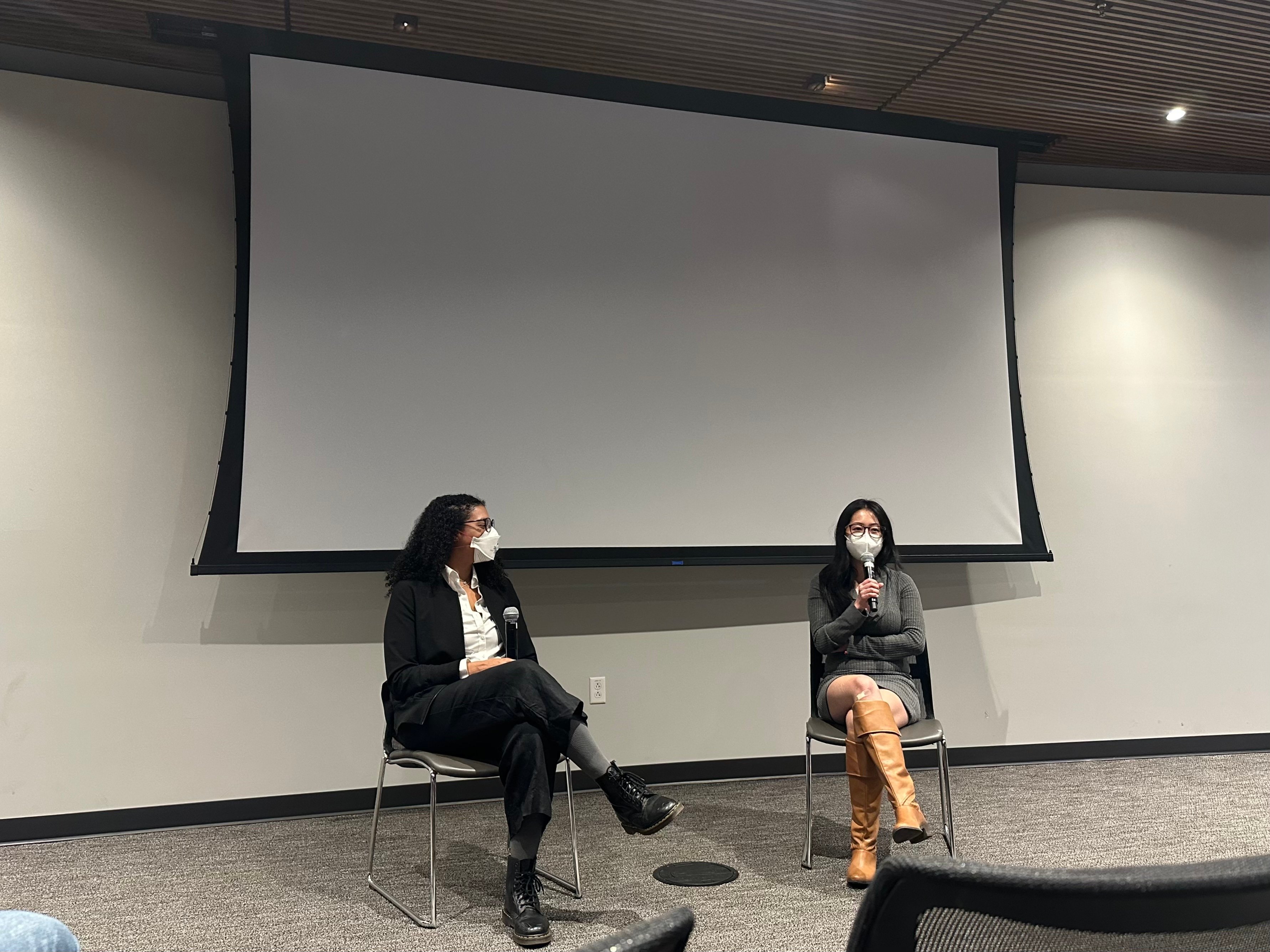On Wednesday evening, two Stegner Fellows captivated the audience in the latest installment of the reading series. Fiction writer Rucy Cui and poet D. M. Spratley presented pieces with a blend of poignancy and humor, reminding audiences that joy should play a role in the writing process.
The night began with a short welcome by Nicholas Jenkins, the director of the Creative Writing Program. He shared that “there may not always be literature in politics, but politics has certainly always been in literature,” in an allusion to the prior day’s presidential election. Jenkins encouraged the audience to be present with their feelings and with literacy works, despite possible “apprehension” of the future.
As a tradition during Stegner Fellow readings, second-year fellows introduced the first-year fellows, prefacing the reading with a short encomium. On Wednesday, fiction fellow Hassaan Mirza introduced Cui, describing her writing as a creation of “meaning and estrangement, unity and disunity, humor and loneliness.”
Cui first read a prose piece set in El Paso, Texas in the 1890s. She prefaced the topic as a “defying and confounding” of racial elitism along the western frontier. Her short story provided a lens of multiculturalism on a commonly mythologized American West. On a blind search to get “closer to freedom,” the excerpt captured a collective movement, with the frequent use of “we” to describe the shared settler experience.
Cui earned her MFA at the University of Wyoming and said that she has found trouble accessing the same feelings about the American West since coming to Stanford. As she grapples with this struggle, Cui has pivoted her writing form away from novels to short stories.
Cui’s second story was speckled with melancholic humor. The fiction writer entwined recounts of family struggles and high school conflicts through a lighthearted scaffolding of a job at Costco. Quiet laughter and murmurs of reflection sprinkled the room, as Cui wove metaphors into a subdued portrait of hardship. Mirza called her writing “kaleidoscopic.”
Following Cui, Spratley took the stage. She was introduced by second-year Joseph Rios, who highlighted her ability to “grab hold of my head and make me see how they see.”
Spratley began her presentation with a poem to show “what collective anger can do,” referencing the presidential election. Another poem, “The Time I Was a Horse,” navigated elitism and belonging in higher education, reflecting on her own experiences as an undergraduate at Princeton University. Spratley’s voice remained ardent but intentional as she read poems about justice, sexuality and race.
In the Q&A session, Spratley said that she attempts to incorporate joy into her work that “pushes back against oppressive systems.” The poet read the title of her third poem as an example — “To the Two Teenage Girls in a Single McDonald’s Stall in Paris, Kentucky Taking Pregnancy Tests” — drawing smiles from the audience and herself.
An audience member asked Spratley to share about her in-progress pieces. Spratley said that she is working on pieces that explore the losing of minds and memory, specifically how oppression is used as a transgenerational “method of inducing madness.” She noted that she seeks to answer the question, “where is safety?” and what it looks like for people to find it — or not find it.
The last question of the night dove into the fellows’ respective writing strategies. Spratley responded that writing is something dependent upon bodily sensations, knowing that when a word or sentence feels “playful,” something is right. Cui nodded along with Spratley’s explanation, adding that “if the commas and prepositions aren’t giving [her] joy, then get rid of it.”
Editor’s Note: This article is a review and includes subjective thoughts, opinions and critiques.
